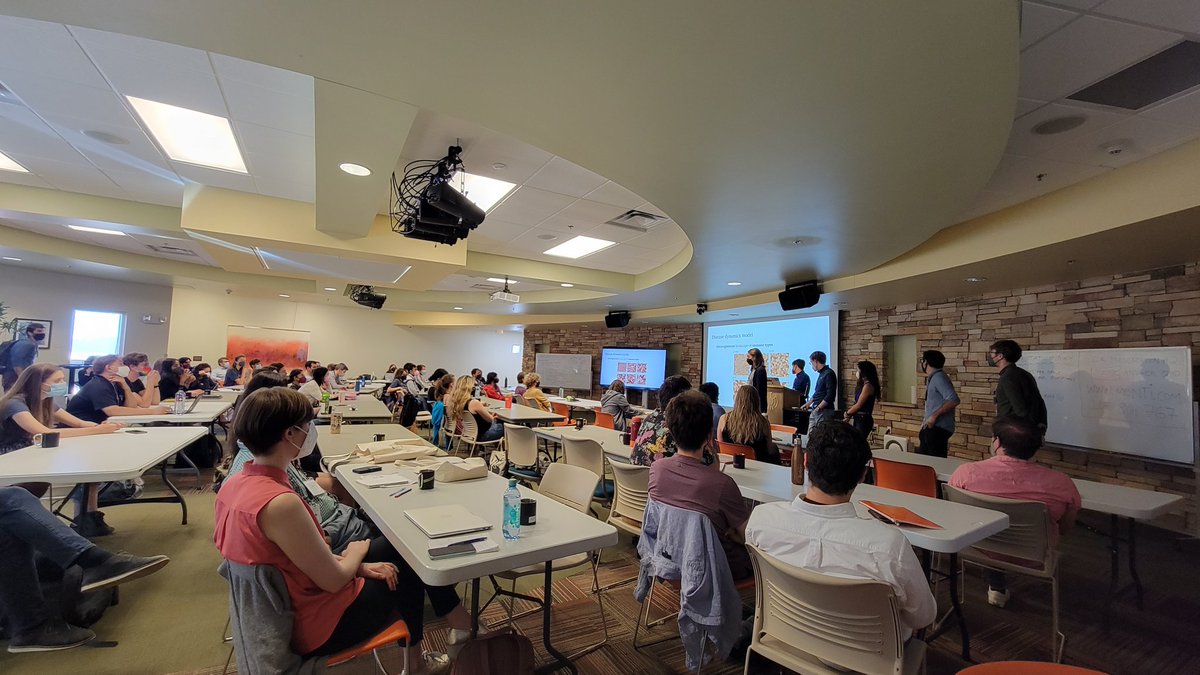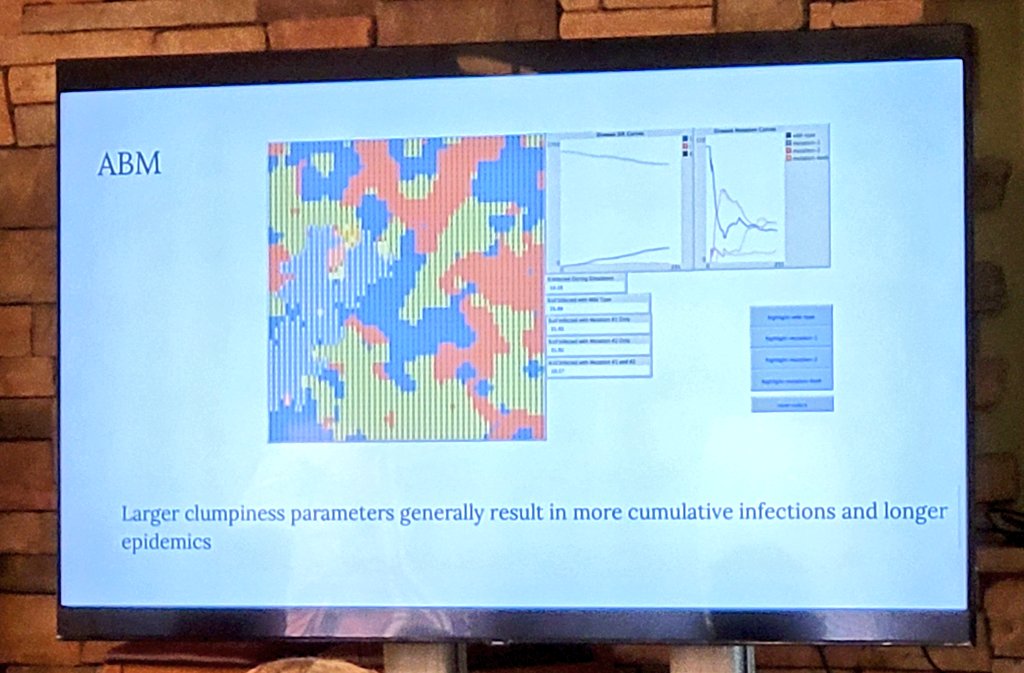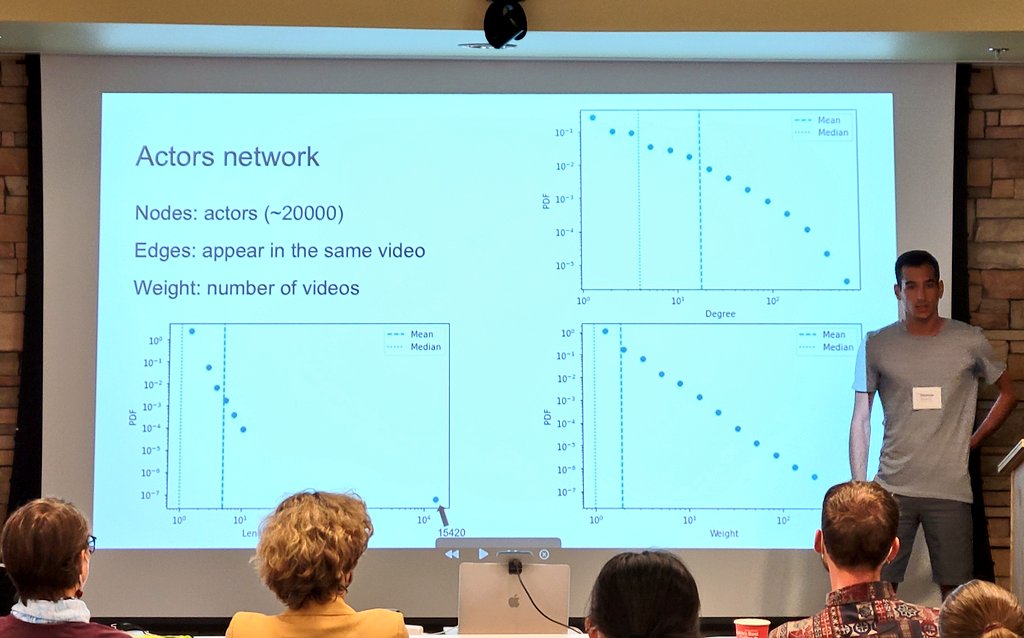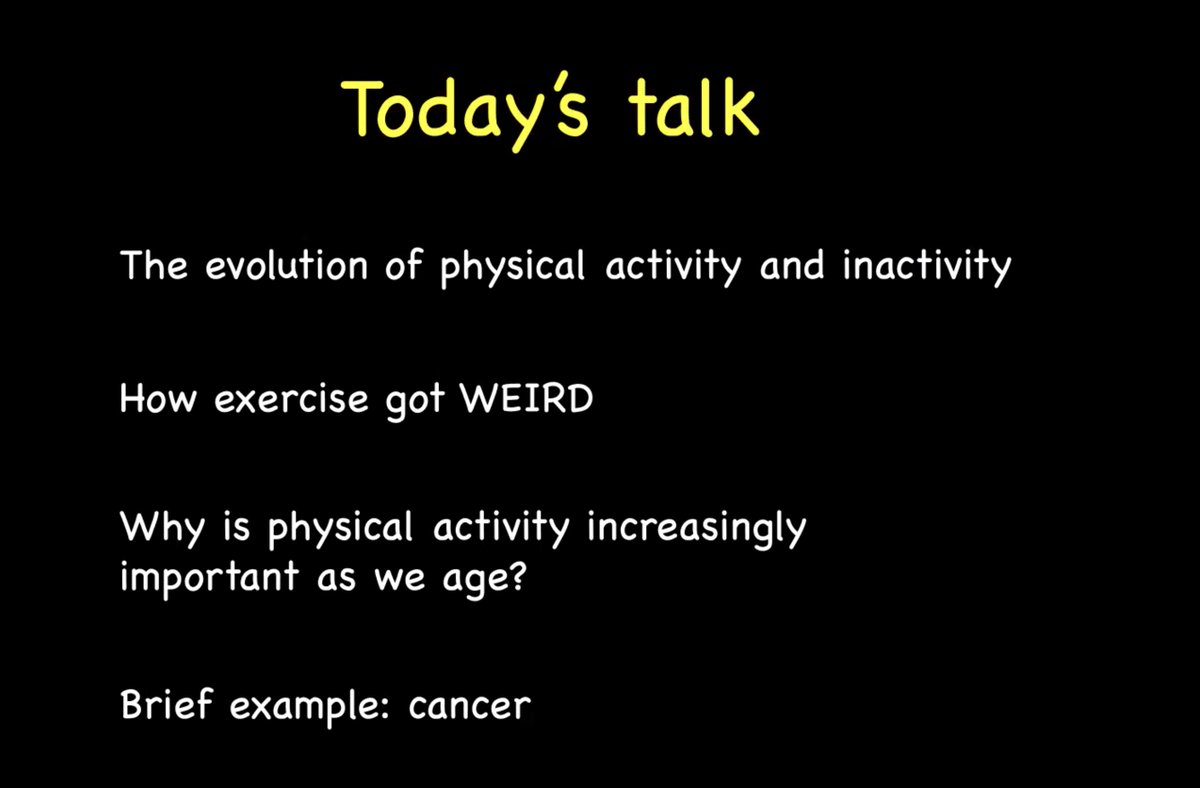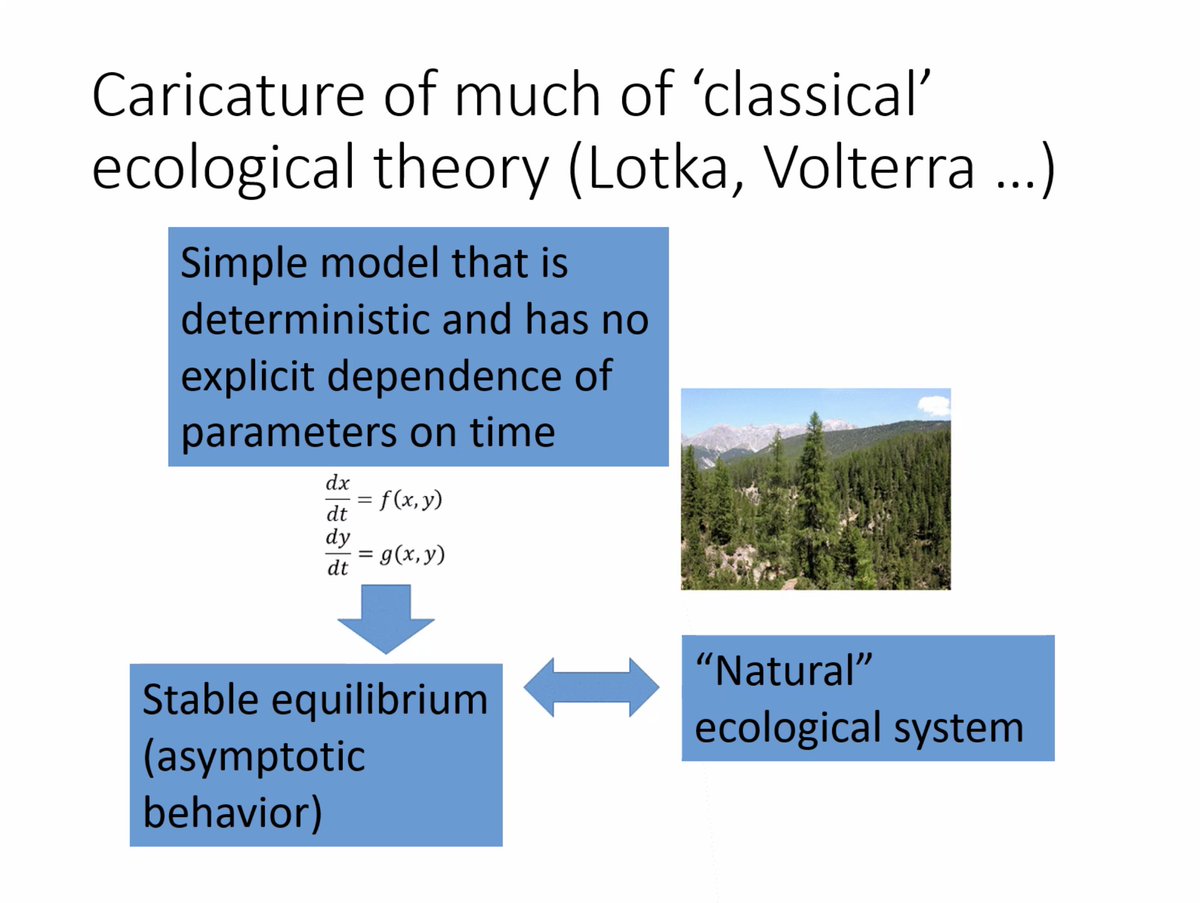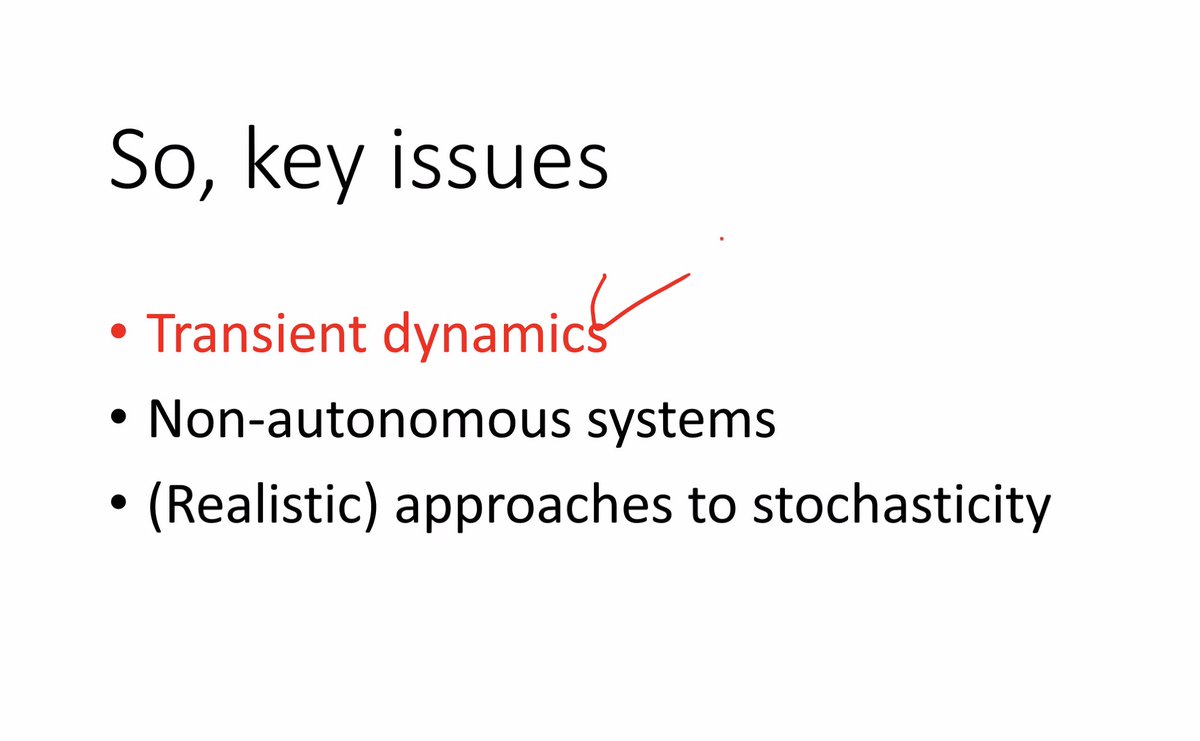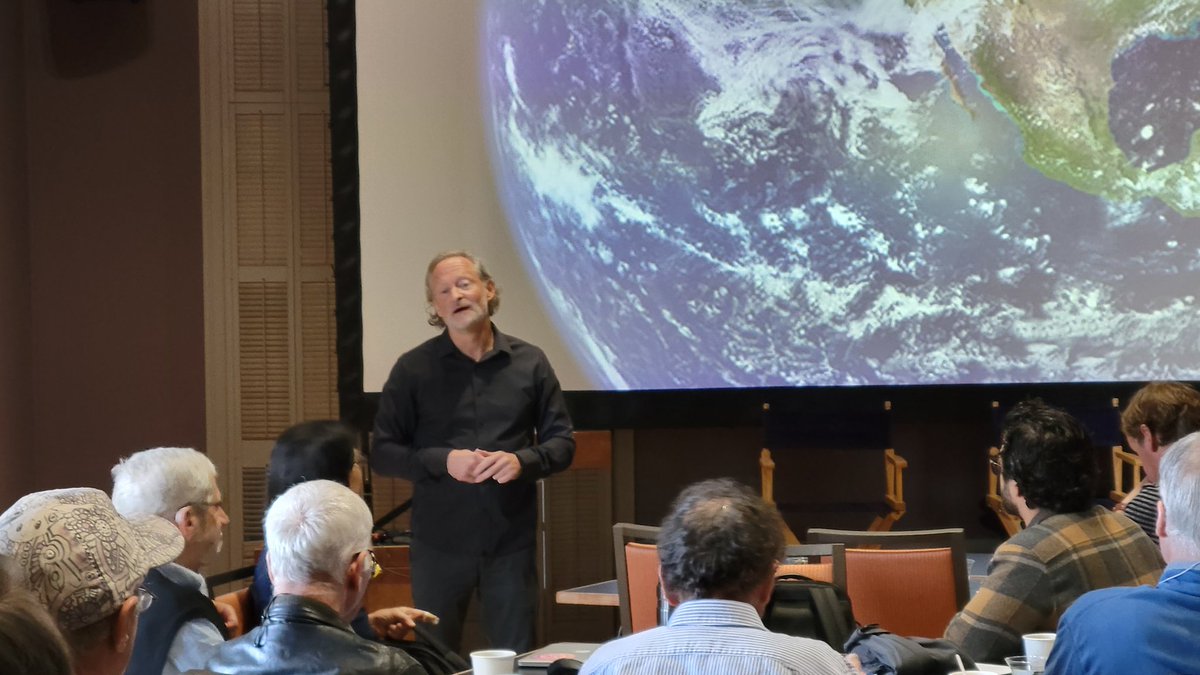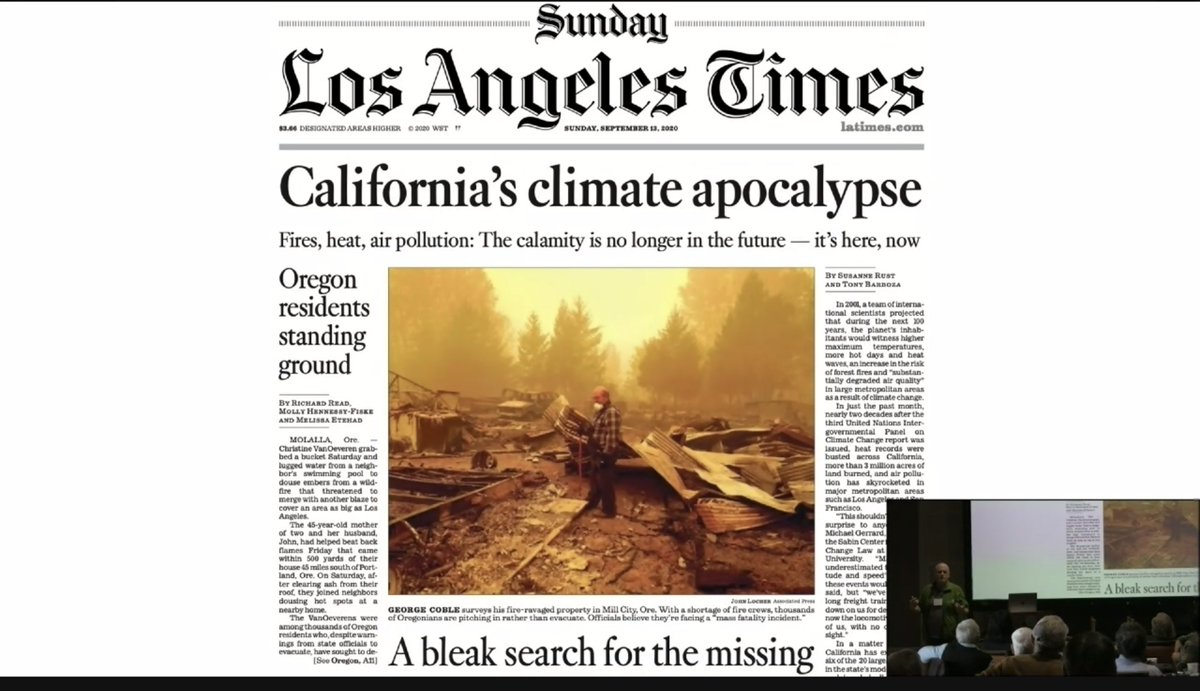
"The Evolution of Strangers and Foreigners"
🧵 Today's SFI Seminar by @DoctorBugs (@Smithsonian)
santafe.edu/events/life-an…
cc @templeton_fdn
🧵 Today's SFI Seminar by @DoctorBugs (@Smithsonian)
santafe.edu/events/life-an…
cc @templeton_fdn

First, a loop back to his LAST (2020) SFI Seminar on 3D structure of living systems from biofilms to rainforest canopies:
And his #ComplexityPodcast episode on ideas from that talk and this one:
complexity.simplecast.com/episodes/52-Z7…
And his #ComplexityPodcast episode on ideas from that talk and this one:
complexity.simplecast.com/episodes/52-Z7…
"People often think of societies as cooperative, but some societies are NOT very cooperative. I prefer to put the focus on them as groups."
"Societies are just one aspect of belonging. There are groups *within* societies & that's what psychologists mostly focus on."
@DoctorBugs



"Societies are just one aspect of belonging. There are groups *within* societies & that's what psychologists mostly focus on."
@DoctorBugs
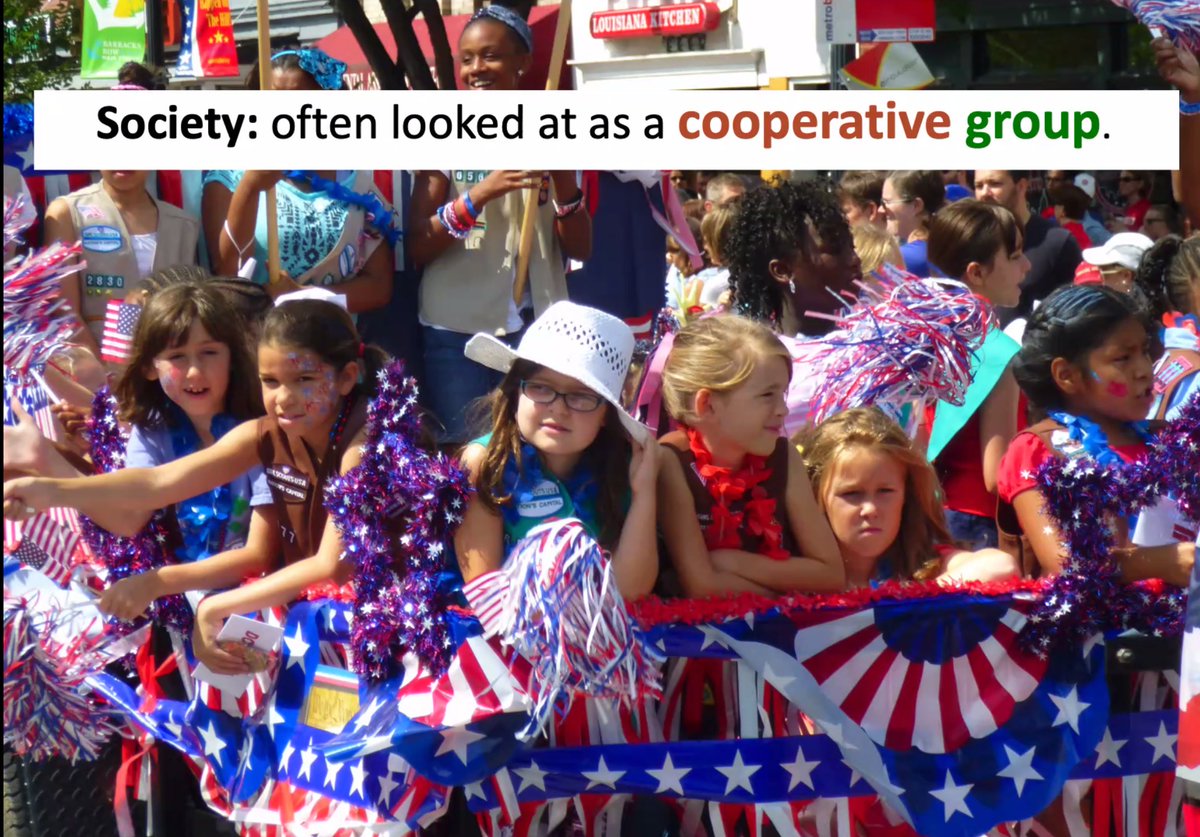



No matter the organism, #societies are by definition hard to join. Membership is all or nothing: once you're in, you're in.
"In some animals like horses, every member of the #society is unrelated to other members; there are direct fitness benefits of being in these groups."

"In some animals like horses, every member of the #society is unrelated to other members; there are direct fitness benefits of being in these groups."


"Many animals are social but do not have societies."
"You can be a part of a society and not connected to anyone else in the network."
(Re: pairwise interactions)
@doctorbugs

"You can be a part of a society and not connected to anyone else in the network."
(Re: pairwise interactions)
@doctorbugs


@DoctorBugs 1 - Definitional Features Of A Society
2 - 2013 paper in Human Nature:
researchgate.net/publication/24…
3 - The Human Swarm (@BasicBooks):
basicbooks.com/titles/mark-w-…
@DoctorBugs


2 - 2013 paper in Human Nature:
researchgate.net/publication/24…
3 - The Human Swarm (@BasicBooks):
basicbooks.com/titles/mark-w-…
@DoctorBugs



"One of the most amazing things is that you can enter a @starbucks and not want to kill everybody. If you're a chimpanzee, you will not tolerate strangers in your group."
Individual interaction societies (#humans, #elephants) vs. anonymous societies (#ants, some flocking birds):



Individual interaction societies (#humans, #elephants) vs. anonymous societies (#ants, some flocking birds):




On the biggest battlefield ever measured: #warfare between #ant colonies.
"A society can only grow so long as it has resources and space. This is, obviously, an extreme allowance for strangers."
"As long as membership traits are hard to replicate, they can be pretty foolproof."

"A society can only grow so long as it has resources and space. This is, obviously, an extreme allowance for strangers."
"As long as membership traits are hard to replicate, they can be pretty foolproof."


On the evolution of #language, #ritual, #covertsignaling, and other hard-to-fake (but not always costly) traits of membership in societies:
"Modern humans can move through #swarms of other humans with little memory challenge. This allows us to not constantly panic."
@DoctorBugs



"Modern humans can move through #swarms of other humans with little memory challenge. This allows us to not constantly panic."
@DoctorBugs
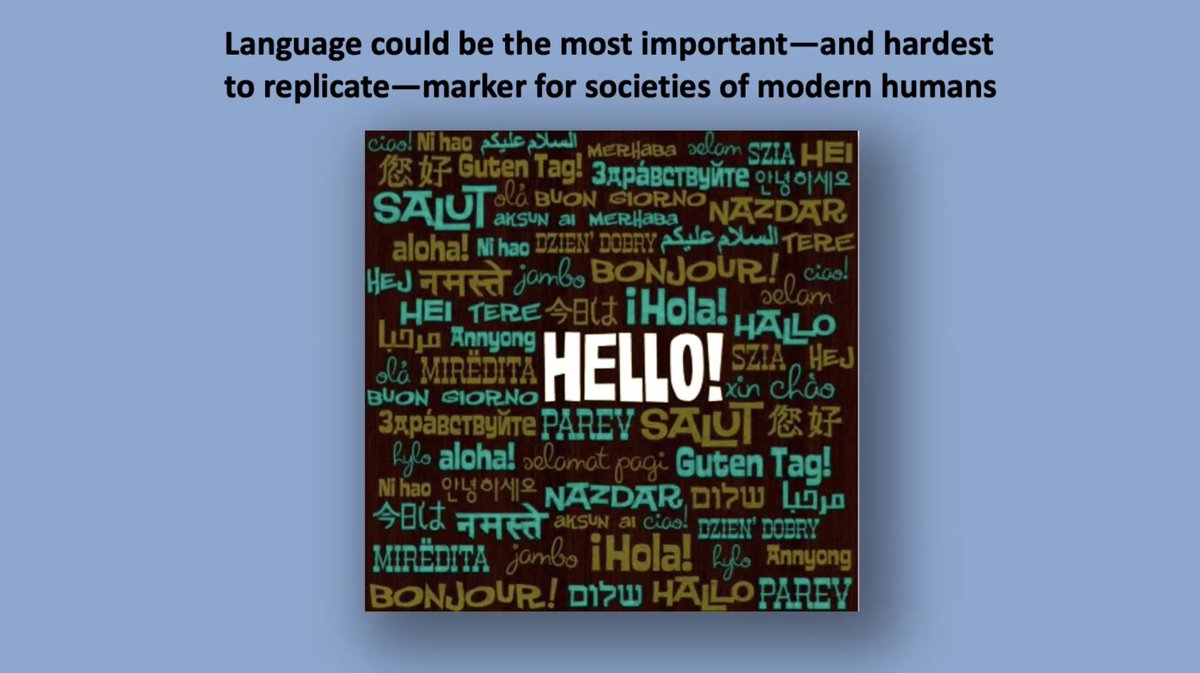


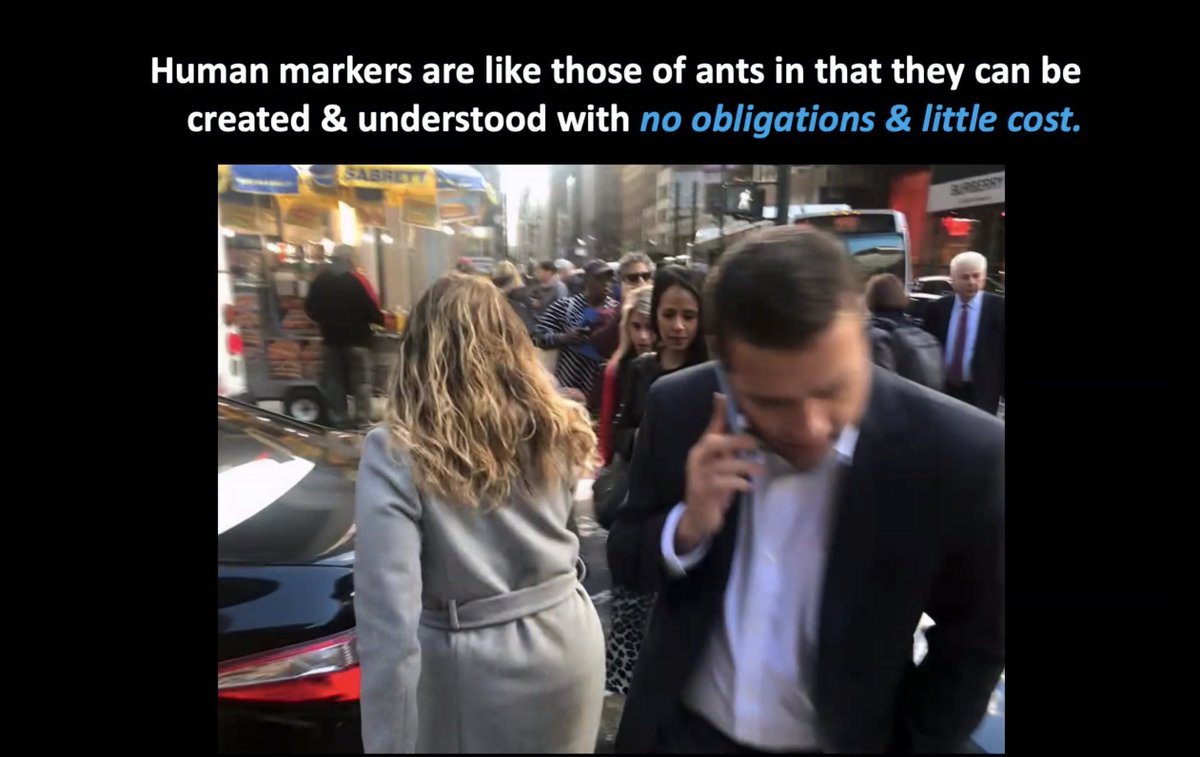
@DoctorBugs "#Ants can have such efficient little brains because they don't recognize ANYBODY in their society as an individual. Only their caste."
@doctorbugs suggests that the size of vertebrate societies hinges on the cognitive complexity of their members/ability to recognize individuals



@doctorbugs suggests that the size of vertebrate societies hinges on the cognitive complexity of their members/ability to recognize individuals




On @JaneGoodallInst's observation of "de-chimpanization" (#fission of social groups) as societies become too large for the recognition of individuals — at which point, former members of "us" become "them."
@DoctorBugs on #SocialScaling (& the #collapse thereof, ~ #Balkanization)



@DoctorBugs on #SocialScaling (& the #collapse thereof, ~ #Balkanization)




@JaneGoodallInst @DoctorBugs "There's this notion of #cosmopolitanism, that societies are just going to appear...it's not going to happen. Even in the EU, societies merge but retain their distinction. Healthy societies do not merge."
@doctorbugs (@smithsonian):



@doctorbugs (@smithsonian):




"We don't want to give up societies; but I also think we CAN'T give them up. Within two days, babies are already preferentially looking at individuals that speak their mother's language. (This doesn't necessarily amount to things happening negatively between groups.)"
@DoctorBugs



@DoctorBugs




"The societies of recent millennia usually divide along ancient lines that represent ancient conquests. Those are easy breaking points because people can return to their cherished traditions: flags, languages, dances, and so forth."
@doctorbugs:

@doctorbugs:


"#Immigration is a fairly recent thing, and most people still expect immigrants to assimilate, to learn the language and customs. To start at the bottom. The ways that states 'think' about #citizenship is not the way that people do."
@doctorbugs (@smithsonian):

@doctorbugs (@smithsonian):


• • •
Missing some Tweet in this thread? You can try to
force a refresh


